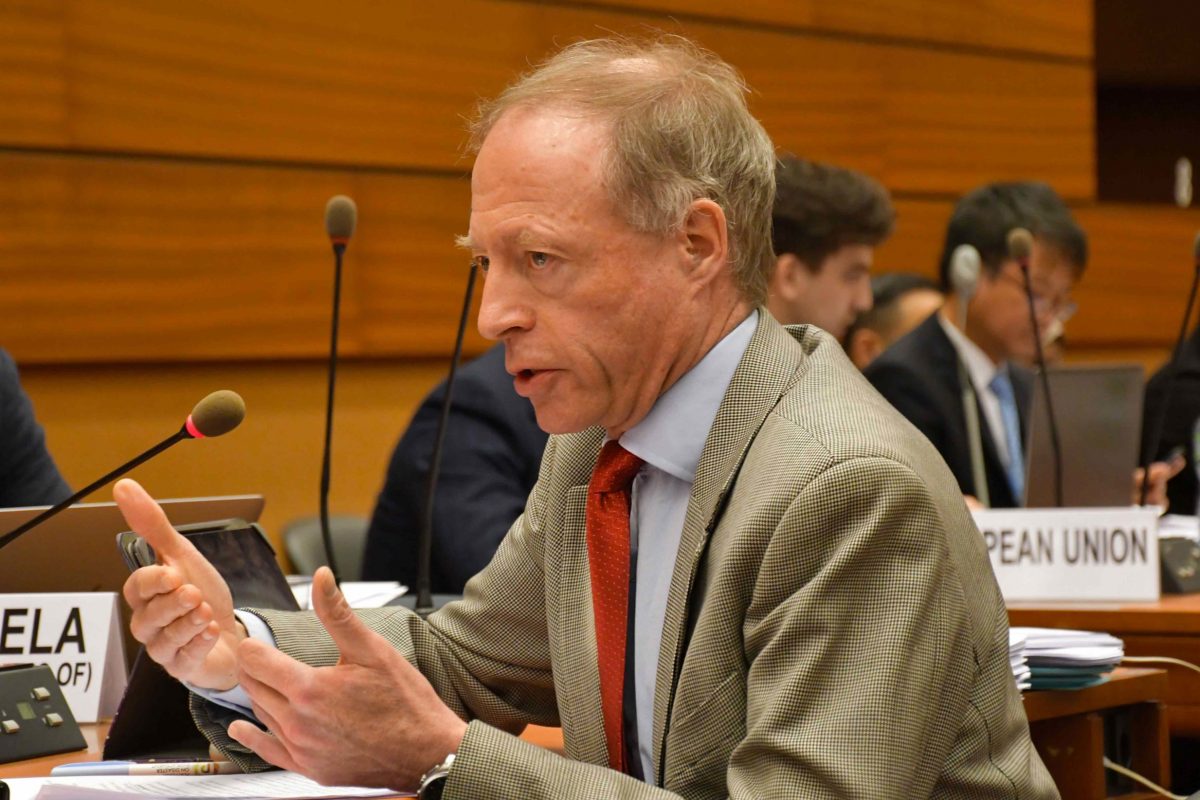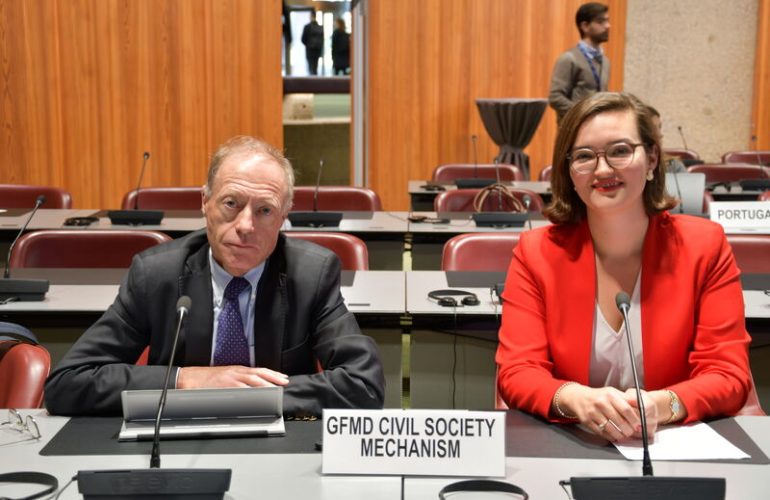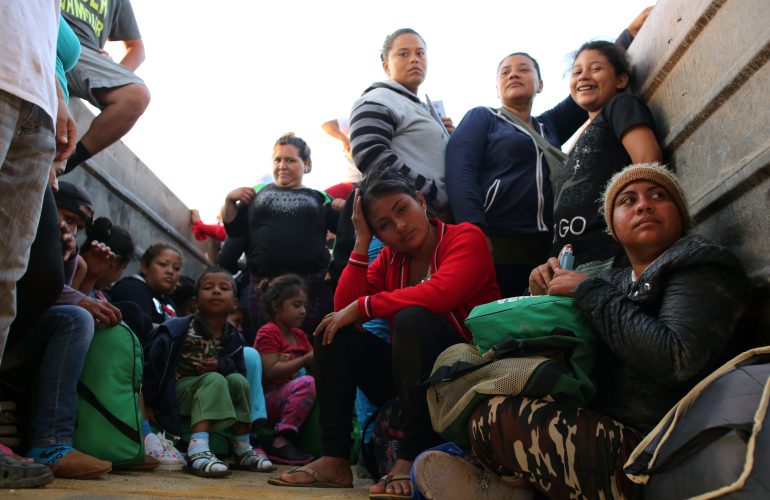“Let’s Work Together,” Civil Society Tells Governments

“Our underlying message is straightforward and simple: let’s work together!” said Stéphane Jaquemet, Director of Policy at the International Catholic Migration Commission (ICMC), speaking to government representatives in Geneva last month.
Jaquemet brought the civil society perspective to a 21 February “Friends of the Forum” meeting organized by the Global Forum on Migration and Development (GFMD). The Forum is an informal space created by governments to exchange and build consensus on migration-related issues. It involves the participation of civil society organizations, the private sector, local authorities and UN agencies.
This past December, over 160 states adopted the Global Compact for Migration (GCM), an international agreement with the potential of bettering living conditions for millions of migrants worldwide. Now that negotiations have concluded, the implementation phase has begun and will require close collaboration between national and local governments, the private sector and civil society actors.
According to Jaquemet, to improve the situation of migrants across the world, it is crucial to “engage all governments, including governments withdrawing from the Compact, without ever compromising on international standards.”
At the “Friends of the Forum” meeting, Jaquemet spoke on behalf of some 300 NGOs that took part in the GFMD Civil Society Days in Morocco in December 2018. This gathering concluded with a report detailing civil society’s ten commitments towards migrants and refugees.
These commitments can be viewed as a road map for the implementation of the GCM and as a tool to build bridges with the Global Compact on Refugees (GCR), another international agreement adopted in December, that focuses specifically on people who cannot return safely to their home country.
Among the priorities set forward in the report, civil society’s concerns include the best interests of migrant children, support to female community leaders and addressing the challenges of climate-driven migration.
Creating a Narrative That Serves Migrants
Jaquemet emphasized the importance of addressing the negative narrative that often surrounds migration. “Losing the battle against xenophobia and hatred is something none of us can afford,” he said.
“Migration is not a concept, but a reality impacting human beings, their life and their dignity.” From a policy perspective, focusing the narrative of migration around those whose lives it impacts means implementing the GCM and the GCR so that they serve all people on the move. It also means including people displaced within the borders of their own country, who fall neither under the categories of refugee nor of migrant.
Future of the GFMD Civil Society Days
In conclusion, Jaquemet reminded the meeting of the importance of civil society participation in the discussions surrounding migration. Thanks to their outreach work, civil society actors can offer invaluable knowledge to governments implementing the GCR and the GCM.
However, due to financial uncertainty, civil society’s participation in the GFMD 2019, which will take place in Ecuador in November, is in jeopardy. “It would be a major drawback,” Jaquemet said, “a disastrous move, on the first year of the implementation of the Global Compact,” if civil society organizations were unable to participate.
Jaquemet thanked the seven countries that contributed to civil society’s participation in 2018 and called upon all governments to support this year’s activities.
“The GFMD is above all a process, which helps create an antidote to xenophobia and the degrading anti-migrant discourse. We do have a collective responsibility to ensure its viability,” Jaquemet concluded.
- Read Civil Society’s Message to at the Friends of the Forum meeting
- Read Civil Society’s Report Detailing Ten Commitments to Migrants and Refugees
- Learn more about the Global Forum on Migration and Development
- Learn more about the Global Compact for Migration and the Global Compact on Refugees


